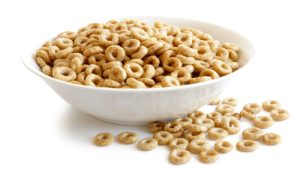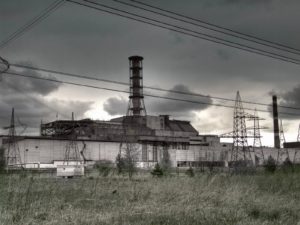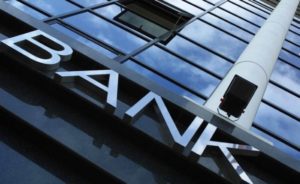
The Board of Directors of the Cereal Planet Group, a leading producer of cereals in Ukraine, has approved the decision to change the place of registration from Cyprus to Poland, the company has reported on the Warsaw Stock Exchange (WSE) on Friday.
According to the report, shareholders at an extraordinary meeting on August 12 made this decision. Now Cereal Planet is going through the registration process in the relevant authorities of Poland. The plans are to register a holding company of the group called Cereal Planet S.A. in Warsaw.
Cereal Planet produces weight grains for B2B under the OLIMP trademark – four product lines: Bulgur, Ridlan, Mayfayna, Zlatokositsa, and under the Lyuba Ferma trademark – animal feed mixtures. It exports cereals to more than 30 countries.
Cereal Planet, according to the company, occupies up to 10% of the Ukrainian cereal market. The monthly production volume is 4,500-5,000 tonnes.
The owners of the group are Anatoliy and Oleksandr Vlasenko (33.54% and 29.93% respectively), Oleksandr Slavhorodsky (29.93%), and Ihor Dobruskin (5.5%).

Nearly 25,000 Hasidim arrived to Ukraine to celebrate Rosh Hashanah (Jewish New Year) 5780, which is celebrated from September 29 through the evening of October 1 this year, according the Jewish calendar.
As a press service of the State Border Guard Service reported on Saturday, for the last 24 hours border guards registered arrival of 5,687 Hasidic pilgrims, who were seeking for entry to Ukraine.
Overall, border guards at the checkpoints in Kyiv, Odesa, Vinnytsia and on the borders with Poland, Slovakia and Romania have already documented the arrival of 24,782 pilgrims in the prescribed manner.
Since the beginning of the arrival of Hasidim from September 6, State Border Service officials refused entry to eight Israeli citizens due to the lack of necessary documents and a ban on entry to Ukraine during a previous visit.

Water routes in the exclusion zone are open for the visitors and comply with all safety standards, said Head of the State Agency for Management of the Exclusion Zone of Ukraine Vitaliy Petruk following a conciliation meeting in Chornobyl and running along one of the recently approved water routes.
“Water routes in the exclusion zone are ready to host the visitors and meet all safety standards. The checkpoints are ready, dosimetric control and escort are provided,” a press service quotes Petruk as saying on Friday.
According to the information, in order to visit the exclusion zone along this route, one need to fill out an application, and the organizer of the visit must provide visitors with water transport.
Pursuant to a presidential decree No. 512/2019 “On certain issues of the development of territories affected by radioactive contamination as a result of the Chornobyl disaster”, the agency approved water routes for visiting the exclusion zone, which provide for movement along the Prypyat and Uzh rivers.

IBOX Bank (Kyiv) has decided to increase its charter capital by UAH 100 million, or by 50%, to UAH 300.004 million through an additional issue of shares.
According to a bank report in the information disclosure system of the National Commission for Securities and the Stock Market, its shareholders decided to increase charter capital at a general meeting on September 25.
The shares will be offered at a price of UAH 1.18 per share, which equals its nominal value, without making a public offer.
The bank plans to use financial resources raised during share placement to bring regulatory capital in line with the requirements of the National Bank of Ukraine (NBU), the report said.
According to the NBU, at the beginning of August 2019 Volodymyr Drobot owned 54.991842% of the bank’s shares, Oleksiy Putiatin some 9.970795%, Ihor Khmelev some 9.897932%, Yevhen Berezovsky some 6.122%, Iryna Shpileva some 5.122519%, Oleksandr Smaliy some 4.70397%, and Natalia Konzurovska some 4.301307%.
IBOX Bank was founded in 1993.
The bank ranked 63rd among 76 banks operating in the country on July 1, 2019 in terms of total assets (UAH 820.014 million), according to the NBU.

Minister of Foreign Affairs of Ukraine Vadym Prystaiko and State Secretary of the Ministry of Foreign Affairs of Sri Lanka Ravinatha Aryasinha, during the 74th session of the UN General Assembly, signed an agreement on visa waiver of citizens who use diplomatic, service or official passports.
“Prystaiko and Aryasinha have signed an agreement between the Cabinet of Ministers of Ukraine and the Government of the Democratic Socialist Republic of Sri Lanka on visa waiver for citizens who use diplomatic, service or official passports,” the Foreign Ministry of Ukraine reported on Friday.
The parties discussed topical issues on the agenda of relations between the two countries, emphasizing the importance of intensifying political dialogue and enhancing interaction within international organizations. Issues of protection of interests of citizens of Ukraine and Sri Lanka were separately discussed.

Electricity production by all power plants of state-owned enterprise Energoatom in January-August 2019 increased by 0.8% (by 428.7 million kWh) compared to the same period last year, to 54.698 billion kWh.
According to the press service of the company, the plan for production of electricity for the specified period in 2019 was exceeded by 0.6%.
The power plants of the state enterprise supplied 51.385 billion kWh of electricity to the market against 51.025 billion kWh in January-August 2018.
The share of Energoatom in the overall structure of electricity production in the country amounted to 53.1%, which is 1.1 percentage points more than January-August 2018.
The volume of capital investments for the eight months amounted to UAH 6.928 billion against UAH 6.926 billion for the same period a year earlier. The financing of capital investments amounted to UAH 9.655 billion against UAH 7.878 billion respectively.
Energoatom transferred UAH 8.997 billion to the budgets of all levels, insurance payments amounted to UAH 1.709 billion.
The installed capacity utilization factor of the company’s nuclear power plants amounted to 67.6%, which is 0.5 p.p. more than in January-August 2018.
In January-August, nine violations were recorded in the operation of Ukrainian nuclear power plants (13 in the first eight months of 2018).